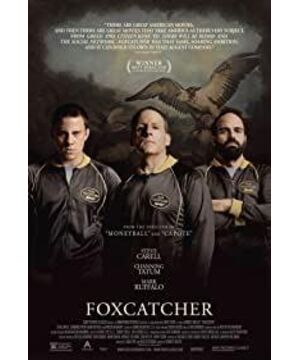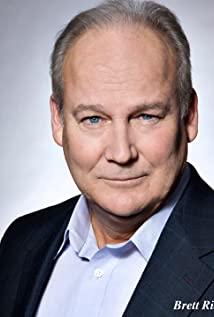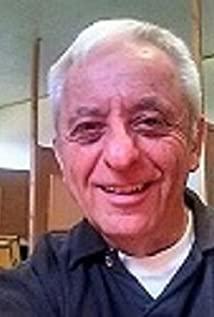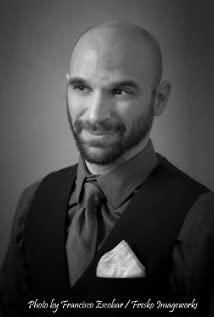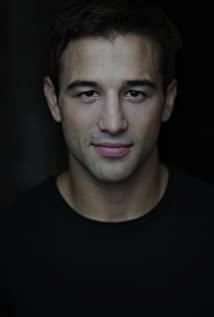From here, the story line should develop in various directions. The most common one can be a sports inspirational type (there are too many examples to mention), or it can be a personal emotional struggle and Self-fulfilling stories (such as "Million Golden Babies") can also be the core of brotherhood (such as "Brothers"). How will this movie go?
(If you plan to watch this movie, please stop reading here, because the following has to talk about the plot. Suggested actions: bookmark this article, find pirated copies, watch the movie, come back to this article, and continue reading.)
----- -------------------------------------------------- -------------------------------------------
Story is the soul of the movie. In Robert McKee's book "Story", he described the value of "story" as follows:
"Story is not an escape from reality, it carries us to pursue reality and try our best to dig out the true meaning of chaotic life. . . . .... Stories are metaphors for life."
"Fox Hunter" is the pursuit and excavation of reality. The film is "based" on a real case in 1996. (This kind of "Based on true events" movie is my favorite, maybe it is determined by the three views that are too realistic?) But the so-called "real" is actually an illusory unknown to the public. Only by relying on films like "Fox Hunter" to give meaning to the events that have happened and to portray the hearts of the characters in those events can we as audiences enjoy a glimpse of the true meaning of life. Stories, mobilize our aesthetic experience, and stimulate our thinking and feelings about the meaning of life - "Fox Hunter" can be said to be quite in place on this point.
The story of the film seems to move in the direction of a sports inspirational film, but when the camera stops for a long time on the face of sponsor John du Pont, and you read a lot of strange things on his numb face, at this time, you will start to doubt Stories will not easily go to a popular value orientation.
Sure enough, our interest was completely hooked when John du Pont stepped into the wrestling team he had created with uncharacteristic enthusiasm, and when some kind of strange bonding began to develop between him and the unearthed timid Mark. up. A series of events and scenes, in a restrained and plain narrative language, constantly create "pressure", push the characters' character descriptions a little bit deeper, and also make the story deviate from the normal sports inspirational line.
Driven by this increasingly tense story structure, the film's three characters (rich businessman John, young wrestler Mark and his brother Dave, also an Olympic wrestling champion), come alive stand up. The characters are shaped by a lot of detail (including detailed close-ups of expressions and body language, rather than dialogue or side-by-side narration), their personalities and inner worlds are also revealed, and the conflict is also highlighted before the three.
Although the three characters are very credible, the most worthy of admiration is the wealthy businessman John du Pont. He should be a descendant of the chemical industry giant DuPont family, sitting on wealth and power, and being indifferent and surly. Gradually the story shows us his vain patriotic fanaticism and conceit as an American elite, and then we discover his lonely childhood, and his lifelong confrontation with his mother; he buys a tank as a plaything at every turn, and is The tank is not equipped with a heavy machine gun and is furious (he smashed the cardboard from the salesperson's hand with one hand, which can be said to be quite concise and wonderful), from which we began to understand a violent tendency in this person's heart. And all these detailed and seemingly inadvertent characterizations point to the final outcome - the rich man raised his gun to the wrestler he sponsored.
(According to a real-life interview with this archetype, he said the reason he shot Dave was because he was "down in the mood that morning." I guess that answer is exactly what the film writers were trying to solve, all the portrayal of John du Pont , should justify this criminal motive.)
The creation of characters is made possible by the performance. For John's complex personality, I didn't expect such a good performance to be the actor Steven Carrell, who has always acted in comedy. In the movie, his almost expressionless face, his sometimes chaotic and sometimes sharp eyes, as well as his gait and body language, are all well-proportioned performances, which are enough for him to win the Golden Globe Award for Best Actor this year. and an Oscar nomination for Best Actor.
The performance of the other two characters also brought a lot of joy to the movie. Mark is cast by a burly young man named Channing Tatum ("Magic Mike"), who presents the physique and body language of a typical wrestler, as well as a rather infectious performance. And Dave's actor is Mark Ruffalo, who has been running around. He recently portrayed a gay man running for the right to live in the film "The Normal Heart", and the mixed feeling of anger and vulnerability is very impressive.
Back to the "story value" and "governing idea" conveyed by the story and characters. In fact, "Foxcatcher" conveys a clear value orientation and creator's ideas, but these values and ideas are complex, mixed and difficult to describe. For example, I believe the film as a whole is about "control/anti-control", as the fox hunt in its opening sequence and the title "Foxcatcher" allude to it: in a competitive sport eroded by wealth and power In this world, Mark and Dave are just foxes being chased by hunters. If they obey power, they will inevitably become pets; if they resist the control of power, they will only go to the end of self-destruction - this is a very gray tone and motif in the bones of the film.
But at the same time, John, the personification of wealth and power in the movie, is pale, weird, indifferent and paranoid, and at the same time his heart is lonely, desperate and vulnerable. At this point, the movie guides the audience to look back at the common childhood experiences of the three main characters, so you will find a sub-topic about "missing/making up" again.
If you look at this film from a personal perspective, I believe it is also criticizing the falsity of Americanism. John talked about patriotism to Mark when he appeared on the stage, took him to cherish the memory of the founding martyrs, and aroused his fighting spirit to defeat the Soviets in the Olympic Games; props symbolizing Americanism often appeared in the movie, and even John asked people to call him "Eagle" . In fact, this kind of great Americanism pursued by the elites has turned out to be only a shackle on the mind of the individual—regardless of whether it is for the elite or the common people.
Of course, you can also see this film as a sharp revelation of the irreconcilable contradictions between classes. No matter under any circumstances, the world of the elite and the common people cannot be merged, and there is an insurmountable gap between them. Therefore, it can also be said that the theme of this film is one word---"Barrier".
Anyway, a movie with a profound idea can have different interpretations, which is the beauty of movies. A good movie presents a landscape and immerses you in it, but what kind of feeling and interpretation you get from the landscape, you will have your freedom. In this seemingly sports-type film, a variety of themes and value orientations can be read, and this richness and layering of meaning is due to an excellent story, as well as the ability to tell the story, drive the characters, and create conflict. Skilled means.
So I believe that "Foxcatcher" should be praised, not only for the actors, but also for its screenwriter and director. Because this film fully presents us the most crucial element of the soul of the film: the power of the story.
View more about Foxcatcher reviews


